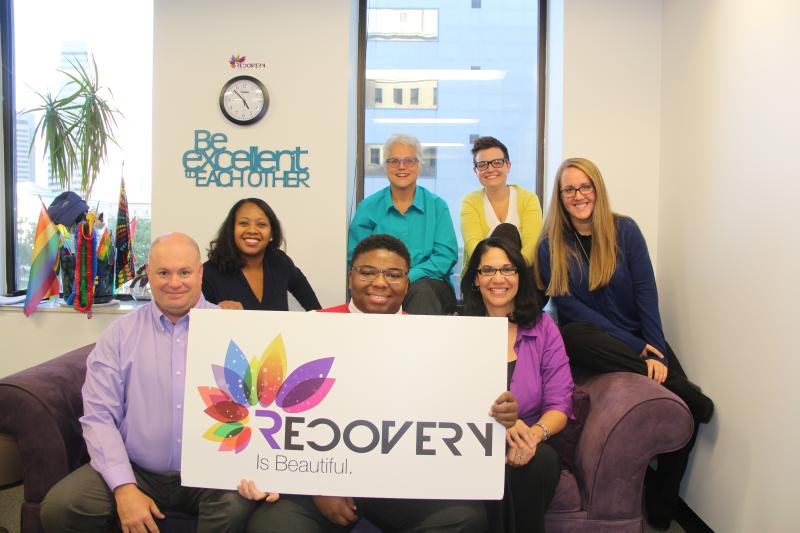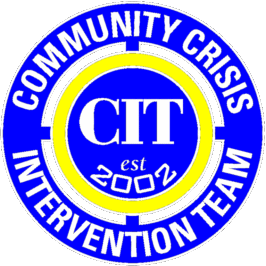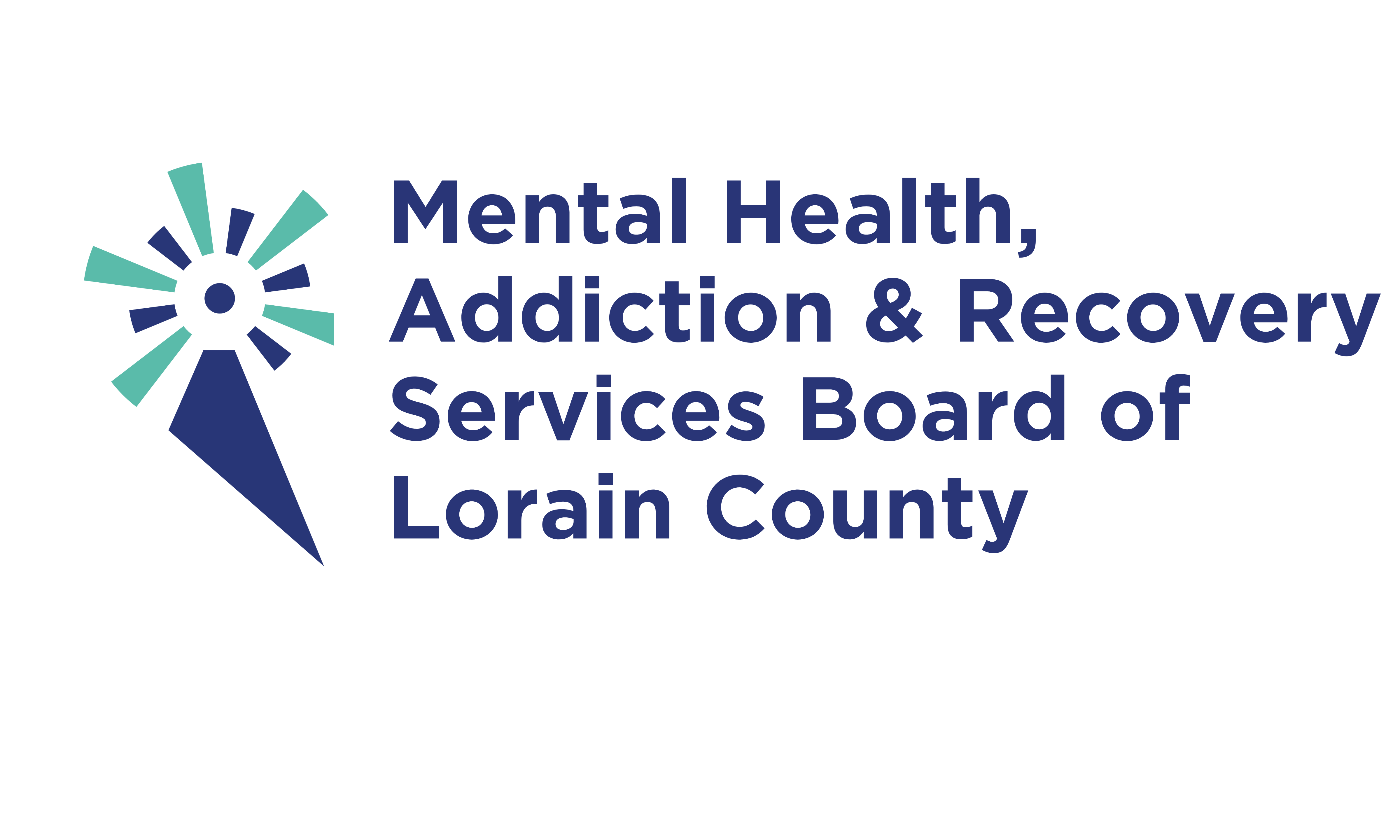
Helpful Information for Provider Agencies
HELPFUL INFORMATION FOR PROVIDER AGENCIES
Resources for Provider Agencies
FY 25 Budget Documents
Budget documents for MHARS Provider Agencies
Direct questions about these forms to Barry Habony, Chief of Business Operations, at bhabony@mharslc.org.
Download:
MH and SUD Medical and Related Services/Coding Attachment A
Resources for Agencies Providing School Based Consultation, Education and Prevention Services
LiveBinder of Guidance and Information
This LiveBinder is intended to help agencies providing school based CEP services to understand the Board’s expectations and to have access to resources that can help.
Share Your Agency Success Stories
Photo/Story Release and Authorization Form:
Have a story or photo about a client’s success? Share it with the Board. An authorization form is linked above. Fill it out and send the story and image — plus the form — to outreach@mharslc.org.
Additional Resources
Search Our Library of Information by Topic

Helpful Information for New Grads, Job or Internship Seekers
HELPFUL INFORMATION FOR NEW GRADS, JOB OR INTERNSHIP SEEKERS
Resources for Aspiring Mental Health Professionals
There are several ways to get experience and knowledge if you already are, or aspire to be, a community-based mental health or substance use worker, a social worker, a peer support specialist, or a clinician.
Earn certification in Mental Health First Aid, ASIST, or other education opportunities through our free trainings
Search for a job or internship
Follow us on LinkedIn
Join our e-newsletter to learn about upcoming events and opportunities

Additional Resources
Search Our Library of Information by Topic

Helpful Information for Advocates and Voters
HELPFUL INFORMATION FOR ADVOCATES AND VOTERS
Resources for Practitioners, Clinicians, and other Professionals
The resources can be useful to consumers and community members as well, with tips like:
- how to build a relationship with your legislator
- how legislation is introduced and becomes law in Ohio, or
- how to testify to a legislative committee.
Local groups often advocate for the needs of people with mental illness or substance use disorder as well, like the Advocacy Committee of NAMI of Lorain County. http://nami-lc.org/advocacy/
Additional Resources
Search Our Library of Information by Topic

Helpful Information for Rural and Agricultural Communities
HELPFUL INFORMATION FOR RURAL AND AGRICULTURAL COMMUNITIES
Resources for Farming Communities:
The Ohio Department of Agriculture says many factors in farming are out of a farmer’s control, which can be stressful. From wondering if the weather will cooperate, to long hours working alone: it can all affect the well-being of the farm family.
The Ohio Department of Agriculture launched “Got Your Back,” a program designed to connect farmers around the state with mental health resources in their area, and help combat the stigma that surrounds the issue. https://agri.ohio.gov/wps/portal/gov/oda/gotyourback/
The MHARS Board provides free Question Persuade Refer (QPR) basic suicide prevention education specifically designed for Lorain County farmers or people living in rural parts of the county, upon request to 440-787-2071.

Additional Resources
Search Our Library of Information by Topic

Helpful Information for Faith Communities
HELPFUL INFORMATION FOR FAITH COMMUNITIES
Resources To Support Faith Leaders In Their Ministry
- Non-Emergency Navigator line: 440-240-7025 | Learn what mental health services are available close to your faith community, or call to connect to a mental health provider.
- 24/7 Mental Health Crisis Hotline: 1-800-888-6161 | Call if someone is experiencing a psychiatric crisis, or if you need advice on how to support someone with mental health needs.
- Educational Opportunities | Visit our Eventbrite page for upcoming free training opportunities on how to see and respond to the warning signs of mental illness. Or, send a request to outreach@mharslc.org to have a trainer come to your religious facility or community group to provide a QPR class, also for free.
- Support Groups and Grief Resources | Find a support group for families that are challenged by providing care to someone with mental illness, or that have lost someone to suicide.

Other Faith Community Resources
How Faith Communties Can Help
A Message of Hope From Pastor Darrell Shumpert
Community
- Initiates social connections with other members
- Creates a sense of belonging to a group
- Offers trustworthy and safe social engagement
Ritual
- Helps people to cope with difficult life situations (i.e. a ceremony for the loss of a loved one)
- Provides structure, regularity and predictability
- Allows for time to rest as well as holidays and other special times of the year
Teachings
- Provides guidelines to live by (i.e. the importance of doing the right thing)
- Teaches compassion, forgiveness and gratitude
- Identifies life lessons, even from challenging situations
Sample Prayers
Sample Prayers | With Guidance From Faith, Hope, Life, an initiative of the National Action Alliance for Suicide Prevention
We pray for those affected by hopelessness as well as people dealing with suicidal thoughts. We ask that you provide them with comfort and guidance, and the placement of a support system in their life to let them know that they are important and that they matter and that they’re not alone. We also pray that you use us, members of this community, to be a support, to BE THERE, to be a listening ear, and a comfort to those in pain, hopeless, and alone. Move our feet, Lord, and help us not only to pray but to take action. We thank you for the support and guidance you have put in our lives, and we ask that if or when the time comes and a wave of hopelessness or suicidal thinking comes over one of us here today, that we’ll find the capacity and the bravery to speak up, speak out, and ask for help from a friend, a loved one, a counselor, or a member of our congregation. Amen.
We come to you to give thanks for this day, which provides us with another opportunity to bask in the glow of your love. We thank you because you are so gracious and kind; we thank you for your abundant love, your loving kindness.
God, we ask right now that you heal the hearts of those who are emotionally wounded, that you allow those who feel alone and abandoned to feel your Spirit. For those of us who feel so lost and forlorn that we can no longer sense your presence, we ask that you send someone to be your eyes, your ears, your arms and your heart so that they can experience your love. When we are at the point where our faith tank feels like it’s on “E”, send someone who is willing to loan us a little faith until we can experience your love for ourselves again.
We ask that you send us an angel, be it in the form of a friend, a counselor or safe medication and medical help so that our spirits can be lifted once again. We ask that you help all of us have compassion and love for those of us suffering through the throes of depression, anxiety and other emotions that sometimes try to snuff out our spirit. We pray for those affected by hopelessness as well as people dealing with suicidal thoughts.
It is common to need help at some point in our lives. God puts us here for each other. Weeping may endure for the night but joy can come in the morning. Move our feet, Gracious God, and help us not only to pray but to take action. We thank you for the support and guidance you have put in our lives, and we ask that if or when the time comes and a wave of hopelessness or suicidal thinking comes over one of us here today, that we’ll find the capacity and the bravery to speak up, speak out.
We offer up this prayer in the name of the One who promises to love us with an everlasting love.
Amen.
We know that at times their suffering is great and their isolation can seem unbearable. May they experience the love and support from our community that is the hallmark of God’s love, as we reach out to them in love.
Also, we ask God to show his hand in helping them experience the effective treatment they need from doctors and counselors and caregivers.
Join me to pray for those who are suffering, pray that God’s good news would, as the prophet Isaiah affirmed and Jesus proclaimed, “bind up the broken hearted and proclaim freedom to the captives.”
We pray for those who care for and love our brothers and sisters who daily face the many challenges of living with mental illness, in any of the many ways those conditions manifest themselves. Their work can be exhausting.
Rise up in us a caring community, to be partners with caregivers, counselors, and other helpers of those with mental illness, and encourage their support in times of need.
I pray this day for all whose lives have been touched by suicide, for families and friends, colleagues and co-workers, who have been touched by the suicide of someone close to them, and I pray for those who have died by suicide.
I pray this day for those who, because of depression, live with thoughts of suicide. Depression can look like sadness, but it can also look like anger, or sleeplessness or restlessness, or disengagement.
I pray this day that I keep learning, about how to see the signs of depression, how to notice when someone isn’t quite acting like his usual self, sending me signals of distress, so that I can reach out with love.
I pray this day for those who live in despair and without hope.
I pray this day for counselors and therapists, psychologists and psychiatrists, who are caregivers, and our friends and partners in helping our brothers and sisters be whole and well.
I pray this day for all who seek to help.
On this day, on this day and on EVERY day, please join me in asking God that He might give us the courage and wisdom to be there for others in distress, to offer love and our care for the common and treatable illness of depression, to help break the silence and change the conversation about suicide,
to be a listening ear, His hands, and His heart for others.
Let’s be honest, life can sometimes feel overwhelming and challenging. Sometimes events can leave us feeling worthless, abandoned, or isolated. But we are a caring community that focuses on the hope that, in God’s time, life’s challenges can be overcome and bad feelings will subside. Through connections within our own community, we can find the strength to live out each day as God gives it. If that living ever becomes unbearable for any one of us, we should know how to access and provide connections and support, including the 24/7 Mental Health Crisis Hotline at 1-800-888-6161.
God loves you and knows your struggles. Even when you walk through the valley of the shadows and feel that you don’t have the strength to face another day, God is with you. God can give you help through friends, loved ones, co-workers, members of your faith community, your pastors, and professionals such as counselors, therapists, and doctors. They can be God’s heart and God’s listening ear when you feel most troubled and alone.
If you know someone (including yourself) who needs help with the difficult challenges of life, has lost hope or withdrawn from others, feels trapped like there is no way out, or has no will to go on, reach out. Let others help. It could make all the difference. Where there is help there is hope.
Faith Radio Messages aired on WNZN Power 89.1 FM
Pastor Marilyn Parker-Jeffries | New Creation Baptist Church of Lorain
Rev. Dr. Carl P. Small| Second Baptist Church of Elyria
Pastor Rodney Thomas | Body of Christ Church of Lorain
Pastor Tim Williams | Greater Victory Christian Ministries
Pastor Vanessa Young | Point of Grace Ministries
Search Our Library of Information by Topic

Helpful Information for First Responders
HELPFUL INFORMATION FOR FIRST RESPONDERS
Crisis Intervention Team (CIT) Trained Law Enforcement Officers


Stepping Up Initiative
For Stepping Up, counties develop diverse teams of sheriffs, jail administrators, judges, community corrections professionals, treatment providers, people with mental illnesses and their families, and mental health program directors to coordinate and tackle system-wide approaches for preventing people with mental illness cycling through jails.
The national initiative launched because the number of people with severe mental illness in U.S. jails has reached crisis levels. An estimated 2 million people with serious mental illnesses are admitted to jails. That is equivalent to the populations of Vermont and New Hampshire, combined.
Local Stepping Up partners include: MHARS, Lorain County Sheriff’s Office, Lorain County Adult Probation, Lorain County Court of Common Pleas, Lorain County Commissioners, Mercy and UH hospital systems, Firelands, Life Care, as well as corrections and probation officers, and other community partners.
Additional Resources
Search Our Library of Information by Topic

Helpful Information for Journalists
HELPFUL INFORMATION FOR JOURNALISTS
Resources for Media and Journalists
We support journalists and their reporting by providing well-researched guidance on covering mental health topics. Please review the library of resources provided here.
Reporters seeking additional information, or mental health subject matter experts, should send requests to outreach@mharslc.org.

Additional Guidelines for Journalists
Suicide Reporting
Responsible reporting on suicide has the power to save lives. How you shape a story will minimize suicide contagion for vulnerable individuals and increase awareness of this major public health issue.
Ohio Suicide Reporting Guidelines
Issued by Ohio University’s E.W. Scripps School of Journalism, Nationwide Children’s Hospital, OhioMHAS
Mental Health Reporting
Journalism Resource Guide on Behavioral Health
Issued by The Carter Center and Emory University
Includes guidance for reporting on both mental health and substance use.
Also see The Carter Center’s online resource library for mental health journalism.
Guide for Reporting on Mental Illness
Issued by The University of Washington and Harris and Smith Public Affairs
Guidelines for Reporting on Violence and Mental Illness
The majority of people who live with a mental health condition are non-violent. Research shows that the manner in which media reports on mass shootings or other violence can contribute to contagion (copycat behavior). Responsible reporting can educate the public and reduce the risk of future violence.
Mindset Reporting on Mental Health
Developed for Canadian journalists, with insights to questions like “Why is stigma an issue for journalists?”
Need background information, statistics, research, or infographics?
The National Alliance on Mental Illness offers background information, research, infographics and statistics, and other useful information for journalists covering mental health.
CHECKLIST FOR JOURNALISTS
Before submitting your story, did you consider these three important questions?:
- Is mental illness or substance use relevant to the story?
If it is not meaningfully linked to the story, there is no need to mention it. Avoid speculation and the generalized belief that behavioral health conditions explain unusual acts or behavior.
- What is your source for the mental illness and substance use diagnosis? If someone’s mental and substance use disorder is relevant, make sure your source is authorized to share health information about the person, and the person’s lived experience, and that the information is accurate.
- What is the most accurate language to use?
Describe the individual first as a person who also is living with a specific behavioral health issue.
Before submitting your story on suicide death, did you:
- Use preferred language? (e.g., “died by suicide” or “took his/her own life;” not “committed suicide.”
- Use objective, non-sensationalistic language to describe the suicide death?
- Exclude details about method, location, notes or photos from the scene?
- Focus on the life of the person versus the death and method?
- Frame suicide as a preventable form of death?
- Indicate that suicide is always caused by multiple factors?
- Convey that suicidal thoughts and behaviors are not weaknesses or flaws and can be reduced with support and treatment?
- Ensure all links contain reliable information?
- Consult a mental health or suicide prevention expert? (Locally, contact outreach@mharslc.org to reach subject matter experts.)
- List suicide warning signs and local resources?
Addiction Reporting
Use Judgment-Free Language When Speaking of Addiction
Michael Botticelli, Director of the Office of National Drug Control Policy, is working to standardize federal communication about addiction and get rid of negative terms. “For a long time, we’ve known that language plays a huge role in how we think about people and how people think about themselves,” he says. “Words have to change so attitudes change.”
Mr. Botticelli notes that calling addiction a “habit” is not accurate, making it sound as trivial as nail biting. Calling people “clean” when they do not take drugs implies they are dirty when they do use drugs, he says. Urine samples that show evidence of drug use are often referred to as “dirty urine.”
“I can’t think of a more telling example of judgmental terminology,” he says. “We don’t say for a diabetic whose blood sugar spikes that they have a ‘dirty blood sugar.’”
Addiction Resources
StopAlcoholAbuse.Gov is your gateway to comprehensive research and resources on the prevention of underage drinking.
Partnership for Drug-Free Kids
Partnership for Drug-Free Kids
Founded in 1987 as an anti-drug advertising campaign and formerly known as the Partnership for a Drug-Free America, we are a nonprofit organization dedicated to reducing teen substance abuse and helping families impacted by addiction.
National Institute on Drug Abuse
National Institute on Drug Abuse
NIDA’s mission is to lead the Nation in bringing the power of science to bear on drug abuse and addiction.
Search Our Library of Information by Topic

Helpful Information for Schools
HELPFUL INFORMATION FOR SCHOOLS
Resources for Teachers, Students, and Administrators:
If a child in your school is struggling with mental health concerns, either personally or in their family, you can help them connect to services.
If your school has an onsite clinician or counselor, that person can help teachers or administrators make a referral for a child. The clinician will contact the child’s parent or caregiver for permission to conduct a screening or consultation. Often, the clinician then will meet with the child and talk to the parents and teachers to determine what service might be appropriate and available, and can provide information to the parent to connect to the service.
In schools where there is no school-based clinician, teachers can follow their internal policy for referrals.

Other Education Resources
FREE Trainings in basic suicide prevention, Mental Health First Aid, and more
Request a Speaker. Tell us your need, and we will match a speaker to your request.
Helpful Publications
Behavioral Health Toolkit: Best Practices and Resources for Lorain County Schools
This toolkit was designed to provide information to educators and administrators regarding the best practices and policies that can help Lorain County middle and high schools to reduce risk of student suicide or substance abuse among students. In addition to providing information about what school’s need in order to better prepare, the tool kit includes information about resources that exist right now in Lorain County to assist schools in improving school readiness.
It includes information to help you assess your school’s readiness for averting a behavioral health crisis. It also includes information on effective behavioral health policy, professional development, student education programs, and resources for parents and students.
This toolkit was created through a collaborative effort of the Lorain County Partners, including the Lorain County Board of Mental Health, the Lorain County Alcohol and Drug Abuse Services Board, the Lorain General Health District, the Elyria City Health Department, with assistance from staff from the Sheffield-Sheffield Lake, Vermilion, and Amherst school districts.
Addiction Resources
StopAlcoholAbuse.Gov is your gateway to comprehensive research and resources on the prevention of underage drinking.
Partnership for Drug-Free Kids
Partnership for Drug-Free Kids
Founded in 1987 as an anti-drug advertising campaign and formerly known as the Partnership for a Drug-Free America, we are a nonprofit organization dedicated to reducing teen substance abuse and helping families impacted by addiction.
National Institute on Drug Abuse
National Institute on Drug Abuse
NIDA’s mission is to lead the Nation in bringing the power of science to bear on drug abuse and addiction.
Search Our Library of Information by Topic
Mental Health Resources
Psychological First Aid Guide
The Psychological First Aid Guide is a resource of interventions designed to assist students, faculty and staff in the event that they may experience natural disasters or acts of violence. The guide includes removable worksheets and handouts that list important things to consider when providing support and assistance in a campus environment. The worksheets and handouts cover various issues including PFA core actions, a checklist of services, tips for self-care and relaxation, as well as individual tip sheets for adults and families and pre-school, school-age and adolescent children and youth.
Helping Youth after a Community Trauma: Tips for Educators community
Traumatic events, such as a natural disaster, school violence or the traumatic death of a peer or educator, can affect student’s learning, behavior and relationships. The tip sheet lists common reactions educators might see in the students with whom they work and suggestions on how them may help.
Suicide Postvention
This document recognizes and builds upon the skills and resources inherent in school systems. Schools are especially resilient and resourceful organizations whose staff members may be called upon to deal with crisis on any given day. Schools can be a source of support and stability for students and community members when a crisis occurs in their community.
These suicide prevention, intervention, and postvention guidelines are designed for schools to use within existing protocols to assist students who are at risk and intervene appropriately in a suicide related crisis. The purpose of these guidelines is to assist school administrators in their planning. These guidelines do not constitute legal advice, nor are they intended to do so.
Search Our Library of Information by Topic

How to talk to your child about suicide
HELPFUL INFORMATION
How to talk to your child about suicide
It’s OK to acknowledge that this is a tough subject: “You know, I never thought this was something I’d be talking with you about, but I think it’s really important.”
If a child has lost a friend to suicide, they really need your support. The Society for the Prevention of Teen Suicide has advice on how to help your loved ones, including ways to cope when your child’s friend dies by suicide, preparing your child to attend the funeral of a friend, and ways to help keep your child safe, even when you don’t know for certain what they are thinking and feeling.

Find resources for parents here: www.sptsusa.org/parents.
Also, download this Headspace Sheet about how to talk to young people about suicide.
[Another Headspace resource: What is mental health?]Watch: It Doesn’t Hurt to Ask Video
In Lorain County, if anyone is experiencing a mental health crisis, call the hotline at 1-800-888-6161.
Things you can do to support the children or teens in your life:
Discover if your teenage child is depressed or anxious.
Take our quick online quiz! This does not replace medical/health intervention, but it can give you a place to start for finding resources.
Make sure that the Crisis Text Line number is in your child’s contact list on their phone: 741741.
This is a free, confidential resource that people of any age can use to help them in a distressing moment. Sometimes, youngsters need someone to talk to, and even if you and your child have a very strong relationship with open communication, research shows that they may not turn to you when they need to talk about potentially life-threatening concerns. Make sure they have the Crisis Text Line (741741) in their phone, and encourage them to use it.
Talk to your child about all of the digital resources below, and encourage them to download these apps and numbers to their phone. They can use these resources when they are distressed, or to get advice about how to help a friend who is distressed.
Explore These Resources

Helpful Information for Youth
HELPFUL INFORMATION FOR YOUTH
Step Up ... Step In ... #BePresent Make a difference for close friends, siblings and classmates!
#BePresent on Snapchat @bepresentohio
#BePresent IRL (ask your school or church to do peer-to-peer trainings so that you can learn how to support someone who is struggling with mental health concerns or addiction)
If one of your classmates seems sad, lonely or depressed, or is cutting, drinking or drugging; if you’ve had a suicide in your school, a problem with drugs or addiction in your neighborhood or family; or if you’re generally concerned the emotional health of yourself or another young person, we can help. Here’s where to go:

GET HELP
Crisis Numbers
If you are worried that a friend is struggling with suicidal thoughts or addiction, but you are also worried that “telling on them” will make your friend upset, remember: it is better to lose a friendship than a friend. But honestly, they will probably be grateful to get the help they need, and know that you were looking out for them.
Put these in your phone
How to talk to your child about suicide
Talking -- directly, non-judgmentally, and with compassion -- with a child about...

More to Know
Find what you need in Lorain County by searching United Way 211
Ohio Youth-Led Prevention Network
The Truth: Let’s Finish Smoking for Good
View More Helpful Videos
More Helpful Information for Youth






